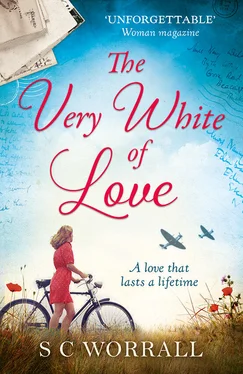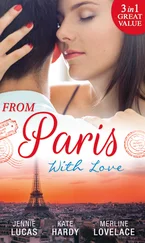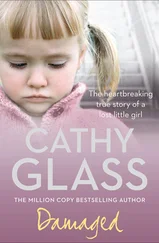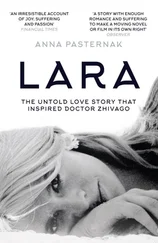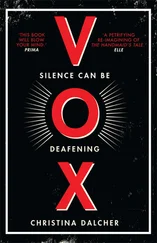S. C. WORRALLwas born in Wellington, England and spent his childhood in Eritrea, Paris, and Singapore. Since 1984, he has been a full-time freelance journalist and book author. He has written for National Geographic, GQ, The Times and the Guardian . He has also made frequent appearances on Radio and TV, including the BBC’s From Our Own Correspondent ; NPR and PBS. He speaks six languages and has lived in or visited more than 70 countries. The Very White of Love is his debut novel.
Copyright
An imprint of HarperCollins Publishers Ltd.
1 London Bridge Street
London SE1 9GF
First published in Great Britain by HQ in 2018
Copyright © Simon Worrall 2018
Simon Worrall asserts the moral right to be identified as the author of this work.
A catalogue record for this book is available from the British Library.
This novel is entirely a work of fiction. The names, characters and incidents portrayed in it are the work of the author’s imagination. Any resemblance to actual persons, living or dead, events or localities is entirely coincidental.
All rights reserved under International and Pan-American Copyright Conventions. By payment of the required fees, you have been granted the non-exclusive, non-transferable right to access and read the text of this e-book on-screen. No part of this text may be reproduced, transmitted, downloaded, decompiled, reverse engineered, or stored in or introduced into any information storage and retrieval system, in any form or by any means, whether electronic or mechanical, now known or hereinafter invented, without the express written permission of HarperCollins.
Ebook Edition © June 2018 ISBN: 9780008217525
Version: 2018-09-17
For Nancy and Martin
Je lève mon verre
Her hands are clasped in the blue mantle of heaven
And the sea, her haven, is flecked with the white of love
‘OUR TRUE BEGINNINGS’ BY WREY GARDINER
Foreword
It was decorated with red roses and tied with a piece of red ribbon, a battered, cardboard chocolate box at the bottom of my mother’s wardrobe. I lifted the box out and put it on the bed next to a pile of her clothes we were donating to charity. Inside were bundles of love letters, yellow with age, tightly bound with string, fastened with tiny knots, as if those knots alone could hold them in place.
Back at my cottage in Herefordshire, I erected a makeshift altar in the window of my study, which overlooked the pub garden and the Black Mountains beyond. For an altar cloth I laid one of my mother’s favourite blue shawls over the top of a chest of drawers, placed a vase of wild flowers and some mementos of her life: a silver bracelet she had bought in Singapore; some of her notebooks and poems; a photograph of her, aged five, sitting with a white, cotton bonnet on her head, in a field of daisies. At the back of this improvised altar, I placed the box of letters and two white candles.
Her death was still new and raw. So the box lay unopened for almost two weeks. I sat by the kitchen window watching the river flow past, hoping it could take my sadness with it. I was a motherless child in my fifties. Divorced. Anchorless. Winter was coming. I went for long, lonely walks across frost-covered hills. In the evening, I doused myself with wine and nicotine, falling asleep to the sound of otters whistling on the riverbank, under a moon that shone like a silver penny on a bolt of black satin.
Then, one rainy afternoon when I was stuck indoors, I untied the knots.
Contents
Cover
About the Author
Title Page
Copyright
Dedication
Epigraph
Foreword
Part One
19 SEPTEMBER 1938: Whichert House
14 OCTOBER 1938: Oxford
22 OCTOBER 1938: Whichert House
12 NOVEMBER 1938: London
CHRISTMAS EVE 1938: Whichert House
12 FEBRUARY 1939: Oxford
25 APRIL 1939: The Oxford Union
25 JUNE 1939: The River Isis, near Oxford
3 AUGUST 1939: Whichert House
5 AUGUST 1939: Whichert House
6 AUGUST 1939: High Wycombe Railway Station
3 SEPTEMBER 1939: Blythe Cottage
23 SEPTEMBER 1939: Whichert House
3 DECEMBER 1939: Whichert House
13 DECEMBER 1939: Levant, Sussex
CHRISTMAS DAY, 1939: Blythe Cottage
16 JANUARY 1940: Newbury Racecourse
18 JANUARY 1940: The English Channel
1 FEBRUARY 1940: Wahagnies, France
21 FEBRUARY 1940: Wahagnies
10 MARCH 1940: Wahagnies
11 MARCH 1940: Wahagnies
13 APRIL 1940: Mousehole, Cornwall
21 APRIL 1940: Whichert House
22 APRIL 1940: Northern France
6 MAY 1940: Wahagnies
12 MAY 1940: Wahagnies
14 MAY 1940: A Road Near the River Ath
15 MAY 1940: Waterloo, Belgium
19 MAY 1940: A Road Near Gaurain-Ramecroix
19 MAY 1940: Tournai, Belgium
20 MAY 1940: The Escaut Canal
22 MAY 1940: The Escaut Canal
23 MAY 1940: The Road to Hazebrouck
24 MAY 1940: The Road to Hazebrouck
25 MAY 1940: Hazebrouck, northern France
Part Two
3rd SEPTEMBER 1940: Blythe Cottage
9 SEPTEMBER 1940: Blythe Cottage
22 SEPTEMBER 1940: Blythe Cottage
6 OCTOBER 1940: Blythe Cottage
11 NOVEMBER 1940: Blythe Cottage
CHRISTMAS DAY 1940: Blythe Cottage
19 JANUARY 1941: Blythe Cottage
9 FEBRUARY 1941: London
29 APRIL 1941: Blythe Cottage
27 MAY 1940: The Orphanage
27 MAY 1940: The Orphanage
6 SEPTEMBER 1941: Thurlestone Sands, Devon
Afterword
Acknowledgements
About the Publisher
Part One
ENGLAND & FRANCE
SEPTEMBER 1938 – MAY 1940
19 SEPTEMBER 1938
Whichert House
Dear Aunt D.,
I’ve fallen madly in love with Nancy Claire Whelan. You’ve every right to laugh when you read that, but I’m terribly happy to have found someone so fond of me, who leaves everyone else I’ve met in the cold. I’m sure you’ve seen her riding her bicycle about town. She lives down the road from you at Blythe Cottage. She is an only child – and a redhead! Her father is in the Revenue Department of the civil service. She was at school in Oxford so she knows it well and she has also lived in France and Germany. She speaks the languages, she sings and acts, she’s intelligent, pretty and, a thing I envy her for, has a good and interesting job.
He lifts the pen and looks out of the window. Outside, a soft rain is falling. Just thinking of her makes him want to dance around the room. But he doesn’t want to tell his aunt everything.
Meeting her was a strange and fateful coincidence . . .
Martin opens his eyes. There’s a thudding pain in his head, as though someone has inserted a fist into the back of his skull and is trying to force the knuckles out through his eyeballs. He groans and rolls over. Fragments of the previous evening float to the surface of his alcohol-curdled brain, like bubbles in a pond. They’d started at the Red Lion, across the street from Whichert House, tankard after tankard of warm beer followed by shots of Bell’s. Hugh Saunders, who is also up at Oxford, had driven over from Gerrards Cross, one of a network of friends in south Buckinghamshire Martin got to know while staying with his Aunt Dorothy during the school holidays. As children, they rode bikes together, played golf and tennis, and later courted the same girls. A couple of old friends had also come down from Aylesbury. It’s the holidays. Four weeks away from Oxford University where Martin is about to start his second year. Four weeks with no essays to write or tutorials to attend. Aunt D. and the rest of the family are off fly-fishing in Scotland. He can come and go as he pleases, stay up as late as he wants, drink too much.
Читать дальше
